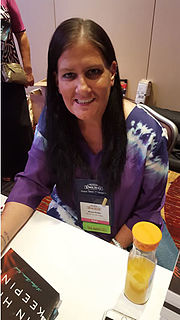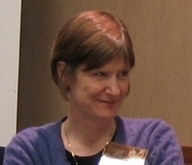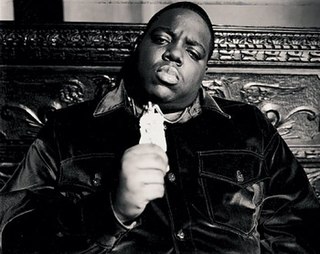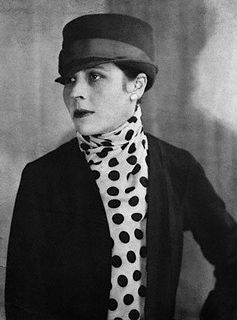A Quote by Jill Stein
We had all the advantages of being in, you know, the '50s and the '60s, where a one-income household could actually support a family. And mom was around and wanted nothing more than to just, you know, do everything she could for her kids.
Related Quotes
Tessa was convinced that it was a lie, and also that everything she had done in her life, telling herself that it was for the best, had been no more than blind selfishness, generating confusion and mess all around. But who could bear to know which stars were already dead, she thought, blinking up at the night sky; could anybody stand to know they all were?
When a destitute mother starts earning an income, her dreams of success invariably center around her children. A woman's second priority is the household. She wants to buy utensils, build a stronger roof, or find a bed for herself and her family. A man has an entirely different set of priorities. When a destitute father earns extra income, he focuses more attention on himself. Thus money entering a household through a woman brings more benefits to the family as a whole.
It’s a risk I’m willing to take. This happens once in a lifetime. You meet someone and have this crazy reaction … you touch her skin and it’s the best skin you’ve ever felt, and no perfume on earth could be better than her smell, and you know you could never be bored with her because she’s interesting even when she’s doing nothing. Even without knowing everything about her, you get her. You know who she is, and it works for you on every level.
She wanted happily ever after more than he could possibly know. She wanted forever. Problem was, she just wasn’t sure she believed in it anymore. It was why she clung to her fiction so much. She immersed herself in books because there she could be anyone and it was easy to believe in love and happily ever after
Those of us who grew up in the '50s and '60s, we had the dream that this could be turned around, and the earth could be back in balance, and that we could level the playing field with men and women and pay, and you know, minority groups having equal opportunity. We just magically thought this was all going to happen: we were going to have clean food, and organic this, and conscious that, and it just didn't happen.
She seemed to know, to accept, to welcome her position, the citadel of the family, the strong place that could not be taken. And since old Tom and the children could not know hurt or fear unless she acknowledged hurt or fear, she had practiced denying them in herself. And since, when a joyful thing happened, they looked to see whether joy was on her, it was her habit to build laughter out of inadequate materials....She seemed to know that if she swayed the family shook, and if she ever deeply wavered or despaired the family would fall.
My mom never had nothing that she could call her own. So growing up and being able to do something different with basketball and be a special player, that was something that I've always had in my mind, I've always wanted to do. And just having the opportunity to do it for my mom is an incredible experience.
How come Mom is crazy and I'm not? Well, it's possible my mom could stand up in front of this many people and talk about all the crap in her life and those people could have sat around and laughed with her, it would've meant nothing and she could have moved on cool. It's also possible she could have taken out the whole front row with a large-caliber weapon.
There's never been a moment,' he barely said, 'when I didn't recognize you.' She wiped her eyes. Her mascara smeared. He nudged the merry-to-round into motion. He could kiss her now. If he wanted. 'I'd know you in the dark,' he said. 'From a thousand miles away. There's nothing you could become that I haven't already fallen in love with.' He could kiss her. 'I know you,' he said.
You know, and the fact that Nina Simone had to start playing in clubs and sing because her parents had moved north to support her music education. You know, so she had to sing. She had to make a living 'cause she was supporting her family. So poverty and race put her in this place which, you know, created enormous success, but it's not what her psyche was all about.
He began to trace a pattern on the table with the nail of his thumb. "She kept saying she wanted to keep things exactly the way they were, and that she wished she could stop everything from changing. She got really nervous, like, talking about the future. She once told me that she could see herself now, and she could also see the kind of life she wanted to have - kids, husband, suburbs, you know - but she couldn't figure out how to get from point A to point B.
She smiled, if he could see that, and waited for him to ask the real question. But he was silent. He wanted her to volunteer the story, she realized, and she could just as easily choose to say nothing. But he deserved to know. They all deserved it, and Kirra already knew it, and Cammon may have guessed it, because Cammon could read souls, but Tayse was the only one she would tell.
My mom is from Jamaica and she was going to school in the morning, and in the evening she was working, and at night she would go to night school and then come in and go to sleep. So she would never watch the news and stuff like that and she didn't know what crack was. She didn't know nothing about it, but when I told her I was selling crack, she threatened to kick me out of the house. And then I just started paying for stuff - paying her bills and giving her money, so she'd just tell me to be careful because there was nothing she could do to stop it.
She was nervous about the future; it made her indelicate. She was one of the most unimportantly wicked women of her time --because she could not let her time alone, and yet could never be a part of it. She wanted to be the reason for everything and so was the cause of nothing. She had the fluency of tongue and action meted out by divine providence to those who cannot think for themselves. She was the master of the over-sweet phrase, the over-tight embrace.


































